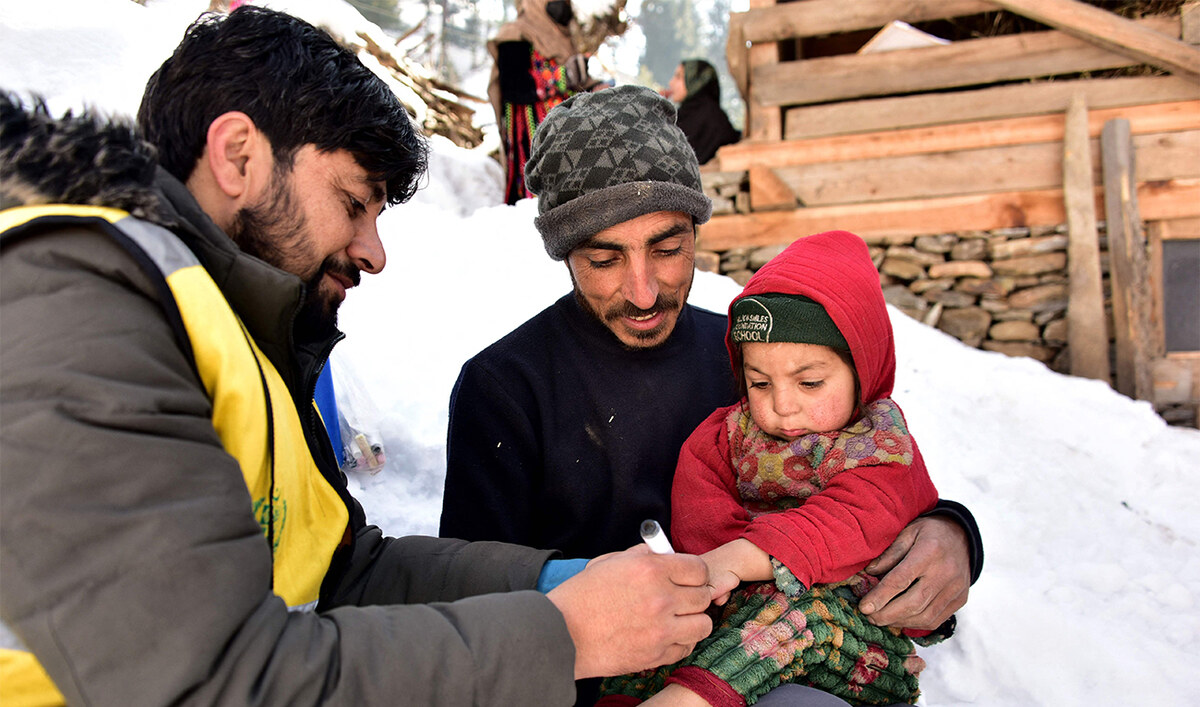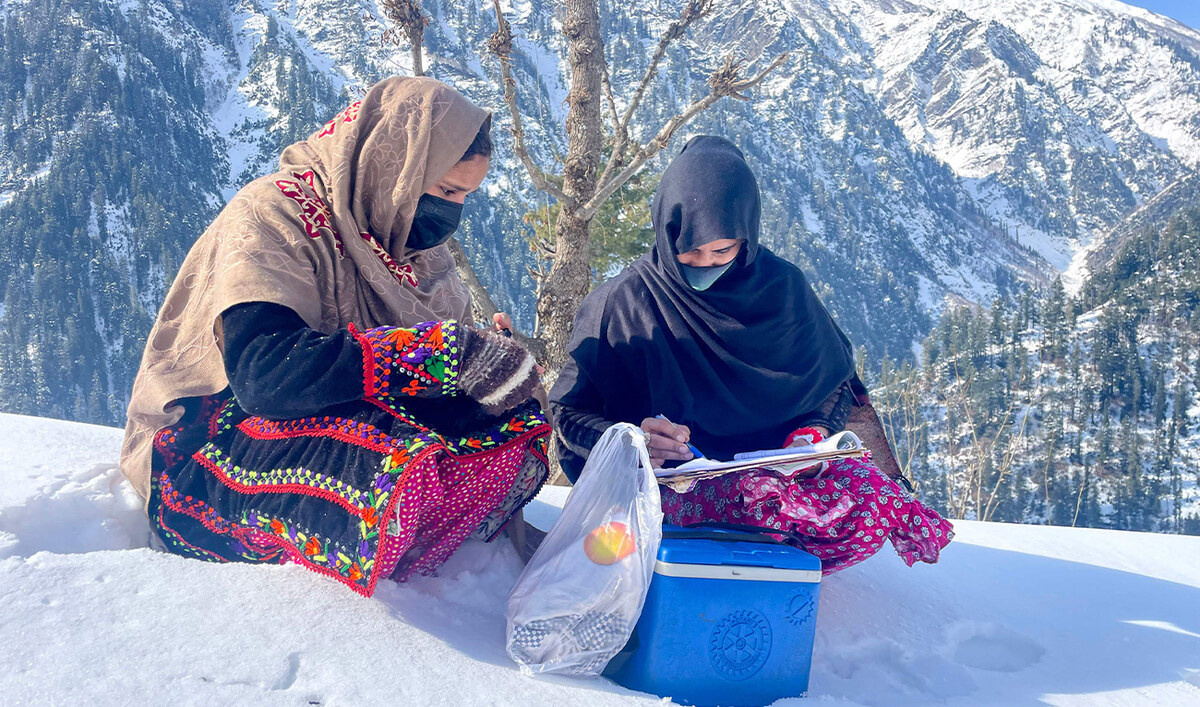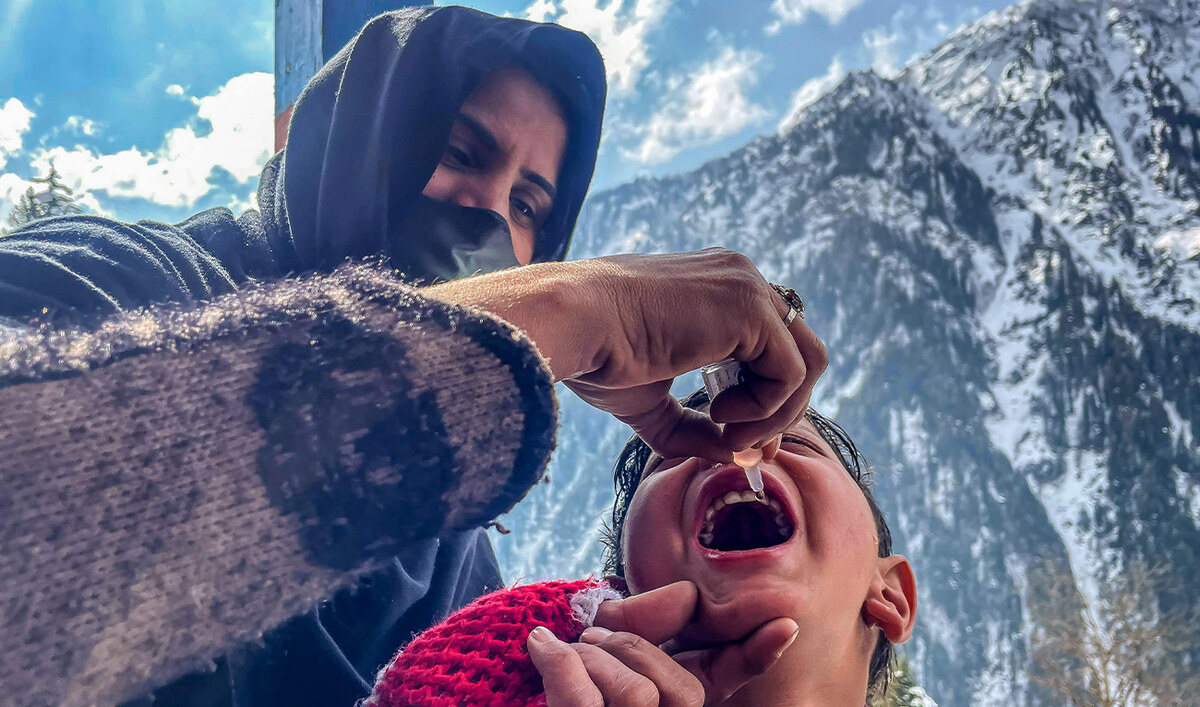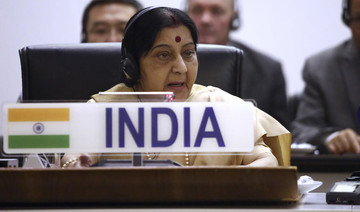ISLAMABAD: Dealing a blow to the already-strained bilateral ties between India and Pakistan, New Delhi said it would no longer participate in high-level talks to be held in New York this week, with Islamabad’s foreign ministry expressing “deep disappointment” at the move late on Friday.
The announcement made by India’s Ministry of External Affairs (MEA) threw the spanner in the works for planned talks between Indian Foreign Minister Sushma Swaraj and her Pakistani counterpart, Shah Mehmood Qureshi which were scheduled to be held on the sidelines of the United Nations General Assembly (UNGA).
The development took place just a day after India had agreed to the meeting.
“The reasons cited by the Indian side for the decision to cancel the Foreign Ministers’ meeting, within 24 hours of its public confirmation, are entirely unconvincing,” Pakistan’s Foreign Ministry said in a statement.
“The so-called ‘disturbing developments’ alluded to in the Indian statement predated the Indian agreement to hold the bilateral meeting in New York,” it added.
On Friday, India accused Pakistan of killing its security personnel in Kashmir, adding that it was “glorifying terrorism” by releasing postage stamps featuring Hizbul Mujahideen fighter, Burhan Wani, who was killed by Indian security forces in 2016.
“When the allegations of Pakistan’s involvement first appeared, the Pakistan Rangers clearly conveyed to (Indian) BSF (Border Security Force) through official channels that Pakistan had nothing to do with it,” excerpts from the statement said, adding that the “Pakistan Rangers also extended help in efforts to locate the soldier’s body. These facts were known to the Indian authorities and a part of the Indian media also reported that Pakistan had refuted its involvement.”
Accusing India of indulging in a “motivated and malicious propaganda,” Pakistan said it “categorically rejected these allegations once again and would be prepared to conduct a joint investigation to establish the truth.”
Stamps featuring Wani were issued before the July 25 general elections in Pakistan “as a result of which the government of Prime Minister Imran Khan assumed office,” the statement said.
“We believe by its ill-considered cancelation of the meeting, India has once again wasted a serious opportunity to change the dynamics of the bilateral relationship and put the region on the path of peace and development,” the Foreign Ministry said, echoing sentiments expressed by Qureshi earlier on Friday.
Reacting to India’s decision to cancel the talks, Qureshi said: “Pakistan had requested for the meeting in the larger interest of the region.”
“It seems that India is already preparing for its elections due in the country next year,” he said in comments to local news outlet Express Tribune, adding that there is a group in New Delhi that does not want the talks to take place.
In a tit-for-tat measure, Qureshi said Islamabad too would not feel the need to respond in haste if India were to approach Pakistan for dialogue in the future. “Pakistan extended the offer despite possessing evidence of Indian interference in Balochistan,” he said.
He concluded his statement by reiterating the need for a dialogue, saying that it was the only way to resolve issues.
Extending an invitation for talks between Qureshi and Swaraj, Prime Minister Imran Khan had written a letter to Indian PM Narendra Modi on September 14 as an official proposal for the meeting. At the time, he had reasoned that an informal meeting of the South Asian Association of Regional Cooperation (Saarc), on the sidelines of the UNGA, would be the ideal platform to restart the derailed talks.
On Thursday, MEA spokesperson, Raveesh Kumar, had confirmed that India would participate in the talks but not before quickly clarifying that “this should not be confused with the resumption of any dialogue; this is just a meeting on the request of Pakistan” and that this “this does not indicate any change in our policy as far as our stand on terrorism and cross-border terrorism is concerned.”
The United States had also welcomed the meeting between Pakistan and India, expressing hope that the stage for a “good, strong relationship between the two neighbors” would be set.
Pakistan’s Information Minister tweeted his disappointment at India’s decision saying that “the world is watching, Pakistan stands for peace, while Indian policies are being guided by extremist ideologies.”
Pakistan ‘deeply disappointed’ after India calls off talks
Pakistan ‘deeply disappointed’ after India calls off talks

- Foreign ministers from both nations were to meet on sidelines of UNGA
- New Delhi has once again wasted opportunity to change dynamics of relations, Islamabad says
UN agencies express concern over Pakistan’s directive for Afghan nationals to leave capital

- UNHCR and IOM say forced return of Afghans to their home country can place them at increased risk
- They say Pakistan has arrested over 800 Afghan nationals from Islamabad and Rawalpindi since Jan. 1
ISLAMABAD: The United Nations Refugee Agency (UNHCR) and the International Organization for Migration (IOM), which operates under the UN system, on Wednesday voiced concern over Pakistan’s directive requiring Afghan nationals to relocate from Islamabad and Rawalpindi or face deportation, urging authorities to consider human rights standards in implementing the policy.
Last year, the Pakistani government announced that Afghan citizens residing in the federal capital would require No Objection Certificates (NOCs) after saying that many of them participated in an anti-government protest launched by former Prime Minister Imran Khan’s opposition Pakistan Tehreek-e-Insaf (PTI) party.
The development came months after Pakistan launched a deportation drive, citing security concerns, with officials arguing that Afghan nationals had been linked to militancy. However, the Taliban-led administration in Kabul contended that Afghan refugees were being scapegoated and insisted they were not responsible for Pakistan’s security issues.
The UNHCR and IOM said Pakistani authorities have arrested and deported over 800 Afghan nationals from Islamabad and Rawalpindi since January 1, including women and children, further raising concerns among humanitarian organizations. They said they were seeking clarity over the modality and timeframe of Afghan relocation.
“Pakistan has a proud tradition of hosting refugees, saving millions of lives,” Philippa Candler, the UNHCR representative, noted. “This generosity is greatly appreciated.”
“Forced return to Afghanistan could place some people at increased risk,” she added. “We urge Pakistan to continue to provide safety to Afghans at risk, irrespective of their documentation status.”
A UNHCR-issued non-return advisory has been in place since 2021, calling for a suspension of forced returns of Afghan nationals from any country, regardless of their status.
UNHCR and IOM have emphasized the need for a mechanism to register and screen Afghan nationals in Pakistan to provide tailored solutions, including international protection for those in need and legal pathways for individuals with strong socioeconomic and family ties in the country.
“IOM is committed to work with the Government of Pakistan and UNHCR to develop a mechanism to register, manage and screen Afghan nationals in Pakistan,” said IOM Chief of Mission, Mio Sato. “This will open the door to tailored solutions, including international protection to those in need and pathways for Afghan nationals, with long-standing socioeconomic and family ties in the country.”
Pakistan’s president says militant attacks won’t end friendship with China

- Asif Ali Zardari meets President Xi Jinping, admits to ‘ups and downs’ in bilateral relations
- President Xi says China is willing to work with Pakistan and ensure greater modernization
BEIJING: Pakistan’s President Asif Ali Zardari said Wednesday that his country’s friendship with China has “gone through ups and downs” but it won’t be broken down by militant attacks.
“Pakistan and China will always be friends, all-weather friends,” he said at the opening of talks with Chinese leader Xi Jinping. “No matter how many terrors, how many issues crop up in the world, I will stand, Pakistan people will stand with the people of China.”
Thousands of Chinese workers work in Pakistan on road and other infrastructure projects under China’s multibillion-dollar Belt and Road Initiative, which aims to improve trade routes and deepen China’s ties with the rest of the world. Chinese workers have been among those targeted in attacks in recent years, including seven who died last year in two separate attacks that raised renewed alarm in China.
Zardari arrived in China Tuesday on a four-day visit that will also take him to the wintry northeastern city of Harbin for the opening ceremony of the 9th Asian Winter Games.
He said that many forces are trying to disturb the relationship between the two countries by launching attacks on “Chinese brothers.”
Xi said that China and Pakistan have an enduring friendship and have set a model for relations between two countries by advancing the construction of the China-Pakistan Economic Corridor and cooperation in various fields.
A Chinese-funded $230 million airport, the largest in Pakistan, started operations last month in the coastal city of Gwadar in Balochistan province, where a separatist group has launched multiple attacks targeting many groups including Chinese.
A shipping port in Gwadar is the end of the envisioned economic corridor, which would cross the length of Pakistan to link the western Chinese region of Xinjiang with the Arabian Sea.
“The Chinese side is willing to work with the Pakistani side to move forward hand-in-hand on our respective paths of modernization,” Xi said.
The start of operations at the airport was delayed from last year after a surge in attacks in Balochistan.
Pakistan health workers kick off polio drive despite snow in Kashmir

- There has been no polio case in the mountainous Himalayan region of Kashmir for 24 years
- Pakistan recorded at least 73 polio cases in 2024, a sharp increase from six cases a year before
SURGAN, Pakistan: Health workers are braving freezing temperatures this week to administer polio vaccinations in Pakistan-administered Kashmir after cases surged nationwide last year.
Pakistan and neighboring Afghanistan are the only countries where polio is endemic, and militants have for decades targeted vaccination teams and their security escorts.
A police officer guarding polio vaccinators in the northwest was shot dead by militants on Monday, the first day of the annual campaign that is due to last a week.
In Kashmir, health worker Manzoor Ahmad trudged up snowy mountains as temperatures dipped to minus six degrees Celsius (21 degrees Fahrenheit) to administer polio vaccinations in the region.
“It is a mountainous, hard area... we arrive here for polio vaccination despite the three feet of snowfall,” Ahmad, who heads the polio campaign in Pakistan-administered Kashmir, told AFP.

Social worker Mehnaz, who goes by one name and has been helping the vaccinators since 2018, said the difficult climate poses a huge risk to the vaccination teams.
“We have no monthly salary... we come here to give polio shots to the children despite the glaciers and avalanches,” she told AFP.
“We risk our lives and leave our children at home.”

The challenge is larger this year for the country with a population of 240 million, after it recorded at least 73 polio cases in 2024 — a sharp increase from just six cases the year before.
Health workers aim to vaccinate approximately 1,700 children within a week in the town of Surgan, around 150 kilometers (90 miles) north of Muzaffarabad, the capital of Pakistan-administered Kashmir.
“Our target is to give polio shots to 750,000 children below the age of five. There are 4,000 polio teams that visit house-to-house,” Ahmad said.

“There have been no polio cases in Kashmir for the last 24 years,” he added with pride.
Polio can easily be prevented by an oral vaccine, but in the past some conservative religious leaders have falsely claimed that the vaccine contains pork or alcohol, declaring it forbidden for Muslims to consume.
Pakistan and China agree to boost intelligence sharing in high-level security talks in Beijing

- Both nations share concerns over militant violence, particularly due to attacks on Chinese nationals in Pakistan
- The two countries also discuss border security and advancing high-quality development under CPEC projects
ISLAMABAD: Pakistan and China discussed security cooperation on Wednesday, agreeing to enhance intelligence sharing to address growing threats during a high-level meeting in Beijing, according to an official statement circulated by the interior ministry.
The two nations share concerns over militant violence, particularly due to attacks on Chinese nationals working on the multibillion-dollar China-Pakistan Economic Corridor (CPEC) projects in various Pakistani cities. Such incidents have prompted Beijing to call for enhanced security measures.
Last year, several Chinese nationals lost their lives in deadly suicide bombings, the most recent of which occurred in October 2024, killing two Chinese engineers near Karachi airport just days before the Shanghai Cooperation Organization Summit in the federal capital.
Pakistan’s Interior Minister Mohsin Naqvi, who is currently accompanying President Asif Ali Zardari on a five-day visit to China, met with his Chinese counterpart, Qi Yanjun, in Beijing to discuss concrete measures to bolster security and strengthen intelligence-sharing mechanisms.
“The meeting focused on improving intelligence coordination between the two countries,” said the official Pakistani statement.
It noted that discussions included an exchange on modern technology for police and paramilitary forces, as well as a detailed discussion on acquiring advanced equipment from China for law enforcement agencies.
The talks further covered border security cooperation, including measures to safeguard key routes and infrastructure projects. Both sides expressed a commitment to deeper collaboration in law enforcement and counterterrorism efforts.
Beyond security cooperation, the two countries are also working to establish special economic zones and encourage private sector partnerships to deepen economic ties. The development of these zones is a key component of CPEC, aiming to boost industrialization and economic growth in Pakistan.
President Zardari also met with Zhao Leji, Chairman of the Standing Committee of the National People’s Congress, to reaffirm the enduring friendship between Pakistan and China.
Both officials emphasized strategic mutual trust and discussed advancing CPEC’s high-quality development, focusing on cooperation in science and technology, renewable energy, infrastructure and agriculture.
Saudi cabinet approves memorandum of understanding with Pakistan to combat financial crimes

- The development signifies deepening strategic relations between the Kingdom and the South Asian state
- MoU was signed between Pakistan’s Financial Monitoring Unit and Saudi Department of Financial Investigation
ISLAMABAD: Saudi Arabia’s cabinet, chaired by Crown Prince Mohammed bin Salman, has approved a memorandum of understanding (MoU) with Pakistan’s Financial Monitoring Unit (FMU) to enhance cooperation in combating money laundering, terrorist financing and related crimes, the Saudi Press Agency reported this week.
Pakistan has faced significant challenges with money laundering and terrorist financing in recent years, leading to its placement on the Financial Action Task Force’s (FATF) grey list in June 2018.
After implementing comprehensive reforms to strengthen its financial system, the country was removed from the grey list in October 2022.
The FMU, established under the Anti-Money Laundering Act of 2010, serves as Pakistan’s financial intelligence unit, responsible for analyzing suspicious transaction reports and coordinating with international counterparts.
“[The cabinet approved] a memorandum of understanding between the General Department of Financial Investigation at the Presidency of State Security in the Kingdom of Saudi Arabia and the Financial Monitoring Unit in the Islamic Republic of Pakistan regarding cooperation in exchanging investigations related to money laundering, terrorist financing, and related crimes,” the SPA reported.
The MoU signifies the deepening strategic relations between Saudi Arabia and Pakistan. A significant Pakistani diaspora resides in the Kingdom, and numerous Pakistani businesses have established a presence there.
Saudi Arabia has been a key supporter of Pakistan’s economy, bolstering its reserves with substantial deposits in the State Bank of Pakistan and offering deferred oil payment facilities.
The Saudi cabinet also highlighted the Kingdom’s hosting of the INTERPOL Regional Bureau as a significant step, saying it underscored international recognition of the Kingdom’s pivotal role in combating extremism and other crime in their different forms.











